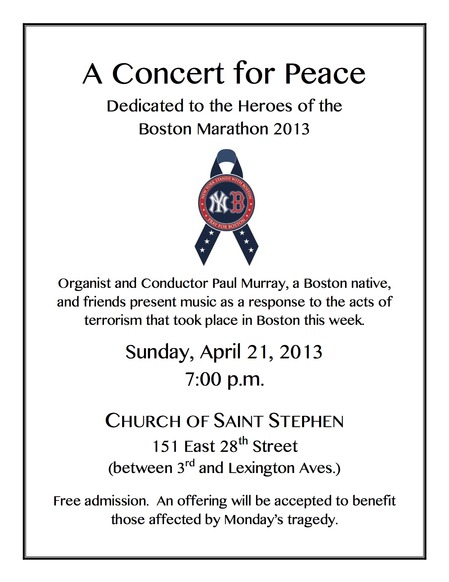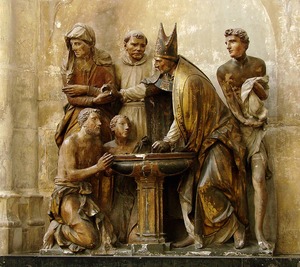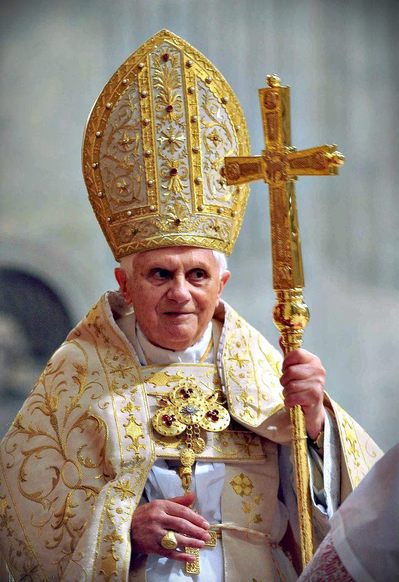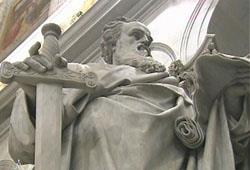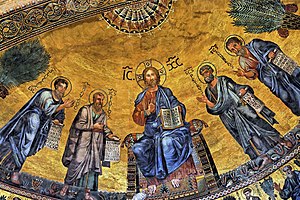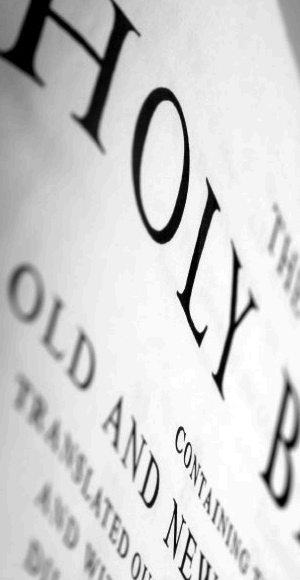The small, rural Scilian town of Trapani apparently is a crossroads of culture and history. It is now dealing with the murder of an elderly priest for allegedly giving bad homilies. His assailant, 33 and unemployed, wanted to teach Father a lesson one what he was saying in the pulpit. In some reports, Father Michele DiStefano is said to have spoken in a public fashion of the wrong-doings (sins?) of his people. I hope he wasn’t revealing what he heard in the confessional.
A Concert for Peace: a tribute to the Heroes of the Boston Marathon 2013
Catholics are reborn and have a new humanity through baptism
The second reading in the daily Office of Readings are generally stunning. Most focus on the paschal mysteries, that is, the Mysteries of Easter that we live. As Catholics, are we reborn in the Spirit? You bet we are. It is the consistent teaching of the Church and those we call “the Fathers of the Church.” Don’t be fooled: Protestants aren’t the only ones reborn in baptism (cf. Creed). Today’s reading is from the first apology in defense of the Christians by Saint Justin, martyr.
Our new birth, a new humanity, is a baptismal regeneration
Through Christ we received new life and we consecrated ourselves to God. I will explain the way in which we did this. Those who believe what we teach is true and who give assurance of their ability to live according to that teaching are taught to ask God’s forgiveness for their sins by prayer and fasting and we pray and fast with them. We then lead them to a place where there is water and they are reborn in the same way as we were reborn; that is to say, they are washed in the water in the name of God, the Father and Lord of the whole universe, of our Savior Jesus Christ and of the Holy Spirit. This is done because Christ said: Unless you are born again you will not enter the kingdom of heaven, and it is impossible for anyone, having once been born, to re-enter his mother’s womb.
An explanation of how repentant sinners are to be freed from their sins is given through the prophet Isaiah in the words: Wash yourselves and be clean. Remove the evil from your souls; learn to do what is right. Be just to the orphan, vindicate the widow. Come, let us reason together, says the Lord. If your sins are like scarlet, I will make them white as wool; if they are like crimson, I will make them white as snow. But if you do not heed me, you shall be devoured by the sword. The mouth of the Lord has spoken.
Continue reading Catholics are reborn and have a new humanity through baptism
Catholics obliged to tithe?
What does the Church’s teach about tithing today?
The question of tithing is better addressed first, by looking at the bible. The Church’s practice is based on the revealed word of God. The biblical warrant can’t be ignored. What does sacred Scripture tell us about a believer’s responsibility and duty to tithe?
There is also the witness of Abraham giving the priest Melchizedek offering God who in turn gave the best of the wine and bread (see Genesis 14).
In the Book of Deuteronomy we hear: “Each year you shall tithe all the produce that grows in the field you have sown…so that the Levite who has no share in the heritage with you and also the alien, the orphan and the widow who belong to your community, may come and eat their fill so that the Lord your God may bless you in all that you undertake” (14:22, 29).
Or, in Leviticus we read: “The tithes of the herd and the flock shall be determined by ceding to the Lord as sacred every tenth animal as they are counted by the herdsman’s rod” (27:32).
Or, in the Book of Numbers, “Give the Levites these instructions: When you receive from the Israelites the tithe I have assigned you from them as your heritage, you are to make a contribution from them to the Lord, a tithe of the tithes…” (18:26).
In Proverbs, “Honor the Lord with your wealth, with first fruits of all your produce; then will your barns be filled with grain, with new wine your vats will overflow” (3:9-10).
Malachi foretells, “Dare a man rob God? Yet you are robbing me! And you say, ‘How do we rob you?’ In tithes and offerings! You are indeed accursed, for you, the whole nation, rob me. Bring the whole tithe into the storehouse, that there may be food in my house and try me in this way, says the Lord of hosts; Shall I not open for you the floodgates of heaven to pour down blessings upon you without measure?” (3:8-10).
Or in Saint Luke, we hear: “Give and gifts will be given to you; a good measure, packed together, shaken down, and overflowing, will be poured into your lap. For the measure with which you measure will in return to measured out to you” (6:38).
Again from Saint Luke we hear: “Then he said to the crowd, ‘Take care to guard against all greed, for though one may be rich, one’s life does not consist of possessions'” (12:15).
At 1 Corinthians 16:2, Saint Paul writes, “On the first day of the week [Sunday] each of you should set aside whatever he can afford.”
At 2 Corinthians 9:5-8, “So I thought it necessary to encourage the brothers to go on ahead to you and arrange in advance for your promised gift [donation], so that in this way it might be ready as a bountiful gift and not as an exaction. Consider this: Whoever sows sparingly will also reap sparingly, and whoever sows bountifully will also reap bountifully. Each must do as already determined without sadness or compulsion, for God loves a cheerful giver. Moreover, God is able to make every grace abundant for you, so that in all things, always having all you need, you may have an abundance for every good work.”
Or, in 1 Timothy, where Saint Paul says: “Tell the rich in the present age not to be proud and not to rely on so uncertain a thing as wealth but rather on God, who richly provides us with all things for our enjoyment. Tell them to do good, to be rich in good works, to be generous, ready to share, thus accumulating as treasure a good foundation for the future, so as to win the life that is true life” (6:17-19).
The concept of tithing is defined as one-tenth of one’s income. Historically, it has been associated with giving God the first fruits of creation in recognition of His place in our lives as Creator. Today, we focus more on financial support of the Church and Church-related charities. The tithe looks back to the ancient agrarian practice of offering God a small portion of the flock and harvest to express gratitude on the part of those who enjoy the fruits of the harvest and animal life around them. The best is always offered to the Lord. To reserve the best for one’s self is, well, selfish. The sacrifice, if it is true, speaks of one’s dependence on God the Creator of heaven and earth because God sustains our life.
Through the years, especially after the move from the farm to industry, tithing meant pledging one-tenth of one’s income to the support of the Church, that is, the support of the Church’s brick and mortar, many works of charity, the education and development programs of the people and the upkeep of the clergy. Do we ask what it means to have tithe today, and what it means when we decide not to meet the 10 percent standard? What about the moral obligation to help the poor and provide the appropriate support to the Church and Church-related charities. The obligation to tithe does not end at age 65. The 10 percent is a number in response to the question of what do I give.
Church legislation after the Edict of Milan (in the 4th century) speaks of tithes in terms of Church’s diakonia, the service to the poor and marginalized. There was no public assistance in the sense that we know it today. The Ecumenical Council of Trent (1545-1563) on the obligation of Catholics to tithe:
The payment of tithes is due to God; and they who refuse to pay them, or hinder those who give them, usurp the property of another. Wherefore, the holy Synod enjoins on all, of whatsoever rank and condition they be, to whom it belongs to pay tithes, that they henceforth pay in full the tithes, to which they are bound in law, to the cathedral church, or to whatsoever other churches, or persons, they are lawfully due. And they who either withhold them, or hinder them (from being paid), shall be excommunicated; nor be absolved from this crime, until after full restitution has been made. It further exhorts all and each, that, of their Christian charity, and the duty which they owe to their own pastors, they grudge not, out of the good things that are given them by God, to assist bountifully those bishops and parish priests who preside over the poorer churches; to the praise of God, and to maintain the dignity of their own pastors who watch for them.
The Council of Trent had a most direct perspective on tithe that’s not held in the same way today. Many pastors won’t talk to the Catholic congregation about the responsibility and duty to tithe perhaps as a residue of Trent’s hard-hitting manner. They are afraid of money, and they are tired of listening to some members of the congregation moan and groan. The fact is, a good pastor needs to speak about money issues; not to do so is wrong-headed. The Christian sense of the tithe was not given based on the charity needed by the Church, the poor or needs of the priests. A tithe, according to Scripture was given in recognition and gratitude for the blessings that God had bestowed; every person (believer) had a desire to tithe to God.
Hence, you don’t hear about proper stewardship today except if one’s attention is drawn to one of the “precepts of the Church” which talks about sustaining the good works of the parish. Nowadays we have some financial appeals for a limited amount of income: the diocese, alumni funds, religious orders, cancer research, the ASPCA, and the like. However, charitable giving to the Church ought to be central to our life of faith. How we use money is critical in the eyes of God, in spiritual life, and in the life we live in society. Recall that the precepts the Church are formative and they are disciplinary. The precepts of the Church form one’s life of faith and one’s conscience and the offer a way of ordering one’s good works. For example, the other precepts include: praying Mass on Sundays and holy days, receiving Holy Eucharist, confessing one’s sins once a year, observing the Church’s teaching on the sacrament of Marriage, and making a financially supporting of the Church.
Tithing, however, is not merely about money. Like I have mentioned, it is about the spiritual life. Keenly, tithing is about who and what we worship. This past Sunday Pope Francis took canonical possession of the Basilica of St Paul outside the Walls and during his homily he spoke the worship of the Divine Majesty in these terms: “Worshipping is stripping ourselves of our idols, even the most hidden ones, and choosing the Lord as the centre, as the highway of our lives.” The improper use of money, the refusal to tithe in a faith-filled manner is not Christian, it is not Catholic and certainly not human. The question becomes not who is your God, but what is your God. Tithing is a conscious decision to not be to consumed by consumerism and “possessed by your possessions.”
How and what we tithe in 2013 is different than what it was 25 and 50 and 2000 years ago. Time is a significant commodity, one that may be more valuable than our money. The time spent washing the altar linens, or doing shopping for the priest or an elderly person, or spending time with the youth group, or doing any number of things is a noteworthy tithe. Catholic families could — in the spirit and biblical teaching of the tithe — budget an agreed-upon percentage of family income to be distributed annually to charitable works, not just “good causes”; some families have constructed the tithe of 10% to a 5 percent of income and five hours a week of community service. Works of charity change us, and the work to change the circumstances of others.
Perhaps the Catholic Church ought to look at tithing as an investment the work of today and in the future. It’s about “paying it forward. Psalm 24 tells us, “The Lord’s are the earth and its fullness: the world and those who dwell in it.” We all would do well to remember that the Lord will never be outdone in generosity.
Happy 86th birthday, Benedict, Bishop of Rome emeritus
Doing School of Community
“How does School of Community become a point of comparison? First of all, it must be read by clarifying the meaning of the words together –not an interpretation of the words, but the literal sequence […] Secondly, space must be given to the exemplification of a comparison between what one lives and what one has read. One must ask himself how what he read and tried to understand literally judges life.”
Fr Giussani (published in Traces, 1992) and quoted in Fr Julián Carrón’s notes for his March 20, 2013 School of Community
Pope Francis begins reforming the US religious orders of women
Many, nor all, but many, women religious in the USA have been feeling under pressure to address their lack of unity with Scripture and Tradition (read: Magisterium) over the last few decades. Of course, let me emphasize, not all women religious, but there are enough that have been living lives that are inconsistent with the charism of their orders, and who have taught their own theology especially on moral matters. Some have set up their own teaching authority over and against that of the Holy See. But this is not a matter of who has the right to make decisions, but it is about how all members of the baptized live in communio with the Jesus Christ and His sacrament, the Church. Their justification may very well be explained that women religious believed they are doing what the Council decreed. Will the US sisters now offer spin on what said and done in Rome today? How will they support the shepherding of Pope Francis? Will the US sisters now reassess their place as members of the Mystical Body of Christ?
Here is the press release of the Holy See:
COMMUNIQUE OF THE CONGREGATION FOR THE DOCTRINE OF THE FAITH CONCERNING A MEETING WITH THE PRESIDENCY OF THE LEADERSHIP CONFERENCE OF WOMEN RELIGIOUS IN THE USA
Today the Superiors of the Congregation for the Doctrine of the Faith met with the Presidency of the Leadership Conference of Women Religious (LCWR) in the United States of America. Most Rev. J. Peter Sartain, Archbishop of Seattle and the Holy See’s Delegate for the Doctrinal Assessment of the LCWR, also participated in the meeting.
As this was his first opportunity to meet with the Presidency of the LCWR, the Prefect of the Congregation, Most Rev. Gerhard Ludwig Müller, expressed his gratitude for the great contribution of women Religious to the Church in the United States as seen particularly in the many schools, hospitals, and institutions of support for the poor which have been founded and staffed by Religious over the years.
Continue reading Pope Francis begins reforming the US religious orders of women
Francis: live an intense relationship with Jesus
The homily of Pope Francis at St Paul outside the Walls.
It is a joy for me to celebrate Mass with you in this Basilica. I greet the Archpriest, Cardinal James Harvey, and I thank him for the words that he has addressed to me. Along with him, I greet and thank the various institutions that form part of this Basilica, and all of you. We are at the tomb of Saint Paul, a great yet humble Apostle of the Lord, who proclaimed him by word, bore witness to him by martyrdom and worshipped him with all his heart. These are the three key ideas on which I would like to reflect in the light of the word of God that we have heard: proclamation, witness, worship.
In the First Reading, what strikes us is the strength of Peter and the other Apostles. In response to the order to be silent, no longer to teach in the name of Jesus, no longer to proclaim his message, they respond clearly: “We must obey God, rather than men”. And they remain undeterred even when flogged, ill-treated and imprisoned. Peter and the Apostles proclaim courageously, fearlessly, what they have received: the Gospel of Jesus. And we? Are we capable of bringing the word of God into the environment in which we live? Do we know how to speak of Christ, of what he represents for us, in our families, among the people who form part of our daily lives? Faith is born from listening, and is strengthened by proclamation.
Continue reading Francis: live an intense relationship with Jesus
Francis outside the Walls: called to proclaim, witness, worship God
At the Mass offered by Pope Francis at the Basilica of St Paul outside the Walls today reminded us that “we must obey God”! Francis asked, do we know how to speak of Christ today?
How Catholics use Scripture: Pope Francis talks on inspiration and truth in the Bible
Yesterday, the Holy Father met with the members of the Pontifical Biblical Commission (PBC) led by German Archbishop Gerhard Ludwig Müller, prefect of the Congregation for the Doctrine of the Faith. The theme the PBC’s annual plenary assembly was “Inspiration and Truth in the Bible.” On the personal and parish level, this theme is revisited year-in and year-out. Catholics (and the Orthodox) have a particular way of praying, reading, studying and living the sacred Scripture that is very different from the Protestant ecclesial communities: from WITHIN the context of the living community of faith, i.e., the Liturgy.
Pope Francis paid close attention to this year’s work of the PBC by saying it “affects not only the individual believer but the whole Church, for the Church’s life and mission are founded on the Word of God, which is the soul of theology as well as the inspiration of all of Christian existence.”
He noted that in Dei Verbum the emphasis of what the nature of Scripture is, how the Church interprets Scripture, what is conserved by the Church, and by whose authority is at work. I think one of the “money quotes” is when Francis reminded us that “The interpretation of Sacred Scriptures cannot be just an individual academic effort, but must always be compared to, inserted within, and authenticated by the living tradition of the Church.”
The point we Catholics have to come to understand and to work on is that we are a biblically based religion, like none other, established by Jesus Christ, and preaching Him since 33 AD. We can’t get away from the Scriptures and that’s why bible study AND lectio divina are crucial every day. The Scriptures are testimony of how God works and humanity responds to God’s invitation.
Here is the Pope’s text:
I am pleased to welcome you at the end of your annual Plenary Assembly. I thank the President, Archbishop Gerhard Ludwig Müller, for his greeting and summary of the topic that has been the subject of careful consideration in the course of your work. You have gathered again to study a very important topic: the inspiration and truth of the Bible. It is a matter that affects not only the individual believer, but the whole Church, for the life and mission of the Church is founded on the Word of God, which is the soul of theology and the inspiration of all Christian life .
